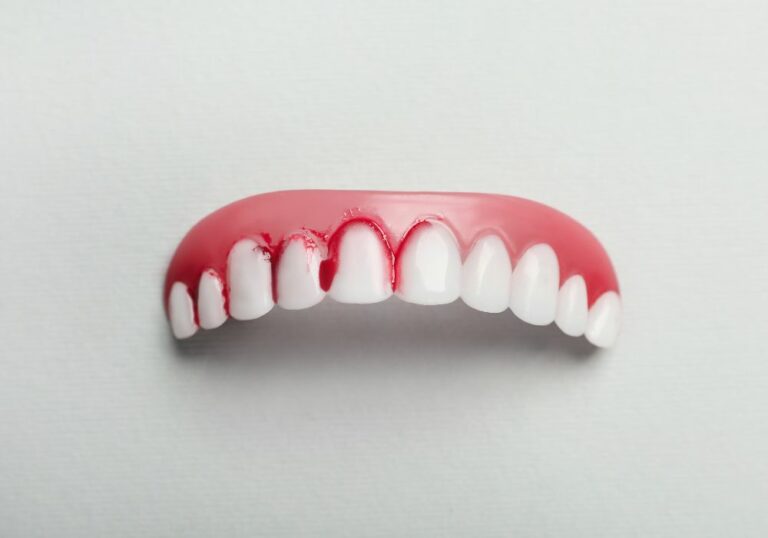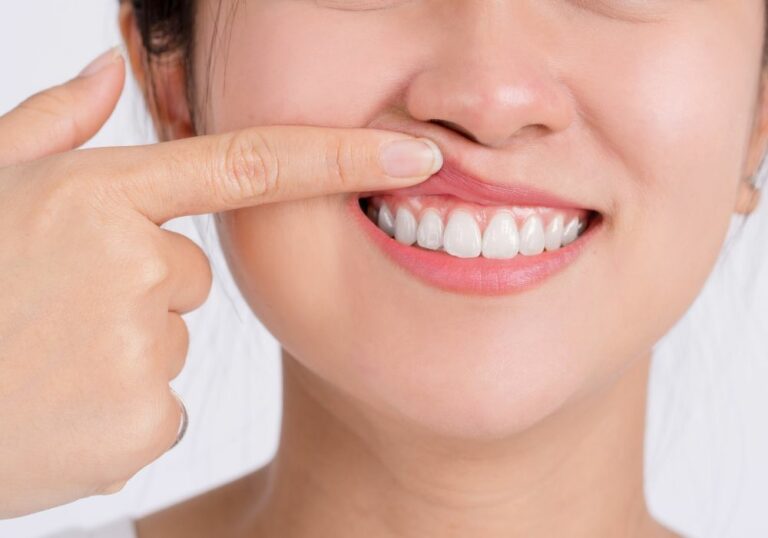Experiencing throat pain or discomfort when swallowing after a tooth extraction is not uncommon. There are several potential causes for a sore throat following dental surgery in the mouth. Understanding the likely reasons and finding relief can help manage recovery.
Common Causes of Throat Pain After Tooth Extraction
1. Swelling and Inflammation
After a tooth is removed, inflammation and swelling often occur as part of the normal healing process. The extraction causes trauma to the surrounding tissues. As the body responds, blood flow increases to the area, and inflammatory chemicals are released. This leads to swelling inside the mouth and throat.
How does swelling occur?
When a tooth is extracted, the surrounding gum tissue, nerves, blood vessels, and bone are impacted. The instruments used to loosen and elevate the tooth put pressure on these tissues, stretching them and causing microscopic tears in the tissue fibers.
Even with a routine extraction, some degree of tissue damage is unavoidable. The body reacts by triggering an inflammatory response and releasing chemicals like prostaglandins, leukotrienes, and histamine. These ramp up blood flow to the area and allow immune cells and proteins to move in.
Fluid and blood plasma leaks out of damaged capillaries and accumulates in the tissues, causing them to become swollen and enlarged. The swelling helps isolate and protect the area during healing. It presses against throat structures, making them painful and irritated.
Why does swelling increase for 2-3 days?
Inflammation and swelling gradually intensify over the first 48-72 hours after an extraction. This is due to the cascade of healing events that occur:
- Damaged blood vessels leak fluid into tissues
- Vasodilation increases blood circulation and pressure
- Immune cells and proteins migrate to the area
- Waste products like histamine accumulate, increasing inflammation
- Blood clotting forms a protective scab over the socket
All of these factors maximize at around 2-3 days post-op, which is why swelling and throat pain often peak during this time.
How long does the swelling last?
It takes approximately 1 week for the inflammatory process to subside after a standard extraction. Swelling and throatache will gradually reduce day by day. However, the time frame varies based on:
- Number of teeth extracted – Removing multiple teeth leads to more swelling
- Surgery length – Longer, complicated extractions cause greater tissue trauma
- Existing infection – This prolongs the inflammatory response
- Medications – Anti-inflammatories help reduce swelling
With proper self-care and any prescribed medicines, the worst swelling and pain usually resolves within 5-7 days.
2. Irritation from Surgery

During the extraction procedure, instruments like forceps, elevators, drills, and scalpels are used to remove the tooth and surrounding bone. This can cause irritation inside the mouth and throat.
How do extraction instruments cause irritation?
The metal tips of extraction forceps and elevators must grip the tooth securely to lift it out. This puts pressure on the adjacent soft tissues of the gums, inner cheeks, lips and tongue. These tools also contact the back of the throat during use.
If the dentist needs to section the tooth for removal, rotary drills may be used as well. This vibration and friction can scrape and rub the nearby surfaces. In a surgical extraction, incisions into the gum line are made with a scalpel.
All this contact and manipulation can leave behind scrapes, scratches, cuts, and bruises anywhere the instruments or hands touch. This damage leads to soreness and pain when swallowing until it heals.
Why does keeping the mouth open widely cause throat pain?
In order to access the teeth, the dentist must fully open the mouth during the extraction procedure. This involves stretching the jaw muscles and joints beyond their normal range.
The jaw must stay distended like this for an extended period, keeping the throat muscles contracted as well. This over-stretches the throat tissues, which can lead to muscle tenderness and soreness after surgery. It may feel like a stiff neck.
How long does the irritation last?
It takes 1 to 2 weeks for minor tissue damage like scrapes and scratches to fully heal. Any bruising could last up to 3 weeks. Sore throat from keeping the mouth open usually resolves within a few days.
3. Infection
In rare cases, an infection develops after extraction. This is more likely with surgical extractions that involve cutting into the gums and jawbone.
How does infection occur after extraction?
The mouth contains billions of bacteria, both good and bad. During an extraction, these microbes inevitably contaminate the open tooth socket and surgical site. The body’s immune response is usually able to control infection.
However, sometimes oral bacteria multiply out of control in the blood-rich socket. Pus, foul odor, severe throbbing pain, fever, and swelling signals a developing infection. Risk factors include:
- Poor oral hygiene prior to surgery
- Pre-existing gum disease
- Lowered immunity
- Bone fragments left in the socket
- Use of unsterilized surgical tools
How do infections cause throat pain?
If left untreated, dental infections can spread from the tooth socket into surrounding facial and throat tissues. The throat becomes red, inflamed, and tender. Pus drainage down the throat can also occur.
In rare cases, a throat infection spreads deeper into tissues and spaces like the tonsils, pharynx, and peritonsillar regions. This requires prompt medical treatment.
How is an extraction infection treated?
At the first sign of infection, the dentist will prescribe a course of antibiotics to clear the bacteria. Warm saltwater rinses help drain pus from the area. The dentist may need to irrigate the socket to wash out debris and treat any remaining infection.
4. Bleeding
After a tooth removal, some minor bleeding often lasts for 12-24 hours. In some cases, significant bleeding continues longer, especially if the patient has a bleeding disorder.
Why does bleeding occur after extractions?
The teeth are anchored into bony sockets with bundles of collagen fibers and small blood vessels. When extracting the tooth, these attachments must be severed, leaving behind an open wound.
The vessels bleed to form a clot and scab to protect the underlying bone and nerves. This is normal and helps initiate healing. However, some individuals are prone to prolonged bleeding after surgery.
How does bleeding after surgery impact the throat?
If bleeding continues beyond 24 hours, it means the blood clot has become dislodged from the socket. Oral blood is constantly swallowed and can irritate the digestive tract. Stomach acids may cause bleeding to worsen.
The iron taste and texture of blood in the throat causes discomfort when swallowing until the bleeding stops and the extraction site stabilizes.
When should I be concerned about excessive bleeding?
Contact your dentist if you are saturating multiple gauze pads an hour after extraction or have excessive bleeding beyond 24 hours. This may require interventions to stop the bleed such as gelatin sponges, sutures, or coagulant medicines.
How to Find Relief from a Sore Throat After Extraction?

Here are some of the most effective ways to manage throat pain and discomfort following dental extractions:
1. Use Anti-Inflammatory Medication
Taking over-the-counter anti-inflammatory drugs like ibuprofen (Advil, Motrin) or naproxen (Aleve) can help reduce inflammation and swelling in the mouth and throat. This decreases painful pressure on throat tissues.
How do anti-inflammatories help with swelling and pain?
Anti-inflammatory drugs like NSAIDs inhibit the production of inflammatory chemicals like prostaglandins and leukotrienes. This minimizes fluid leaking into tissues and prevents swelling.
They also block pain signals from being transmitted to the brain. The combined anti-swelling and analgesic effects provide significant relief from the throbbing sore throat.
What is the appropriate dosage after extractions?
The recommended dosage is 400-600 mg of ibuprofen or 220-440 mg of naproxen sodium every 4-6 hours as needed, not exceeding 3200 mg daily. It’s best to take on a full stomach to avoid stomach upset.
Higher doses may be prescribed initially by your dentist to get swelling under control. Overuse can damage kidneys and stomach lining. Avoid in patients with NSAID allergy or stomach ulcers.
2. Rinse with Salt Water
Gargling with warm salt water 3-4 times a day keeps the throat clean after surgery. The salt helps draw out fluid and soothe irritated tissues.
What ratio of salt to water should I use?
Dissolve 1⁄2 teaspoon of table salt into a large 8 ounce glass of warm water. The salt concentration should be mild and isotonic enough that it does not irritate your throat further.
Test the temperature before gargling to ensure it is a comfortable warmth, not too hot. Rinse gently without excessive swishing or spitting force.
How does salt water help reduce pain and swelling?
The sodium ions in salt act as an osmotic agent, drawing out fluid trapped in swollen oral tissues. Salt also inhibits bacterial growth and removes debris, preventing infection.
Gargling creates a therapeutic flushing action over the throat to dislodge irritants. Finally, the warmth itself helps improve blood flow and relax throat muscles.
3. Drink Cool Liquids
Staying hydrated is vital for healing, and cool beverages can provide throat relief. Avoid extremely hot or icy drinks which could irritate.
What types of liquids help a sore throat?
The best options are room temperature or slightly chilled liquids like:
- Water – keeps tissues hydrated
- Fruit juice diluted with water – provides nutrients and electrolytes
- Decaffeinated tea – soothing warmth and antioxidants
- Milkshakes or smoothies – soft, cool, and nutritious
Take small sips and avoid using a straw which could dislodge the blood clot. Cold liquids can help numb irritation.
4. Use Throat Spray or Lozenges
Over-the-counter numbing throat sprays or lozenges containing lidocaine or benzocaine can temporarily numb the throat to reduce pain when swallowing. Use as directed on the package.
How do numbing products work?
These medications contain topical anesthetics that block nerve conduction from the mouth to the brain. This offers temporary relief and allows you to eat and drink more comfortably while healing.
Apply the spray to the back of the throat 2-3 times per day or allow lozenges to dissolve slowly near the extraction site. Do not eat or drink for 30 minutes afterward for full numbing effect.
5. Avoid Irritating Foods

Spicy, acidic, crunchy, or scratchy foods could further irritate the throat. Stick to cool, soft foods for a few days after extraction surgery.
What are the best foods to eat when my throat is sore?
Choose smooth, gentle foods like:
- Ice cream or popsicles – very soothing and nutritious
- Yogurt – cool and easy to swallow
- Applesauce – provides necessary fruit nutrients
- Mashed potatoes or creamed vegetable soups – soft, nutritious comfort foods
- Pudding, custard, or jello – cool, smooth desserts
- Bone broth – warm and packed with gelatin, electrolytes
- Oatmeal or cream of wheat – gentle grains that slide down easily
Avoid anything sharp, crunchy, salty, spicy, acidic, or hot which could further irritate the throat.
6. Improve Posture
Sit and stand tall, aligning your head over your spine. Slouching forward compresses the throat area, worsening discomfort when swallowing.
How does posture impact throat pain?
Slouching or having your neck bent forward shortens the muscles on the back of the neck. This tenses the tissues connecting the throat to the jaw.
By straightening up, the head is balanced over the shoulders and back. This relieves downward pulling forces on the throat, allowing you to swallow with less discomfort.
When to See a Doctor
Schedule a follow-up visit with your dentist if you experience:
- Severe swelling spreading beyond the mouth: Swelling that extends behind the jaw or down the neck requires evaluation. You may need steroids to control inflammation.
- Bleeding that won’t stop: If you are soaking multiple gauze pads per hour or bleed steadily overnight, contact your dentist’s emergency line. You may need stitches or medications to control bleeding.
- Intense or worsening pain: Sudden spikes in pain levels or throbbing that prevents sleep may indicate an infection starting. Antibiotics may be prescribed.
- Difficulty swallowing liquids: If swelling is obstructing your ability to swallow saliva or liquids, additional treatment is needed to avoid dehydration.
- Fever over 101 F: Elevated temperature can signal an infection. Your dentist will check for abscess and start antibiotics if needed.
These signs may indicate complications like dry socket or infection that require additional treatment. Rarely, throat swelling after extraction can become life-threatening if it completely obstructs breathing. Seek emergency care immediately if you have difficulty breathing.
With proper care following tooth extractions, throat discomfort is usually temporary and resolves within a week as healing progresses. Contact your dentist if mouth pain prevents you from eating, drinking, or swallowing your saliva. Medications or additional procedures may be needed to manage more severe swelling or complications.

Frequently Asked Questions
1. How long does throat pain last after a tooth extraction?
For routine extractions, throat pain usually peaks on days 2-3 and gradually subsides within 5-7 days. It may last longer with surgical extractions or complications like infections.
2. What helps a sore throat after dental work?
Anti-inflammatories, salt water rinses, cool liquids, throat sprays/lozenges and soft foods help relieve throat discomfort after extractions. Proper post-op care and medicine reduce swelling.
3. Why does it hurt to swallow days after tooth extraction?
The trauma of extraction causes inflammation and swelling that puts pressure on throat tissues. This leads to soreness and pain with swallowing which can last for several days as the mouth heals.
4. When should I worry about throat pain after extraction?
Contact your dentist if you have severe/worsening throat pain, high fever, trouble swallowing, or excessive bleeding. These may indicate complications needing treatment.
5. What foods help a sore throat after oral surgery?
The best foods are cool, smooth options like ice cream, pudding, applesauce, yogurt, broth, mashed potatoes. Avoid spicy, crunchy, hot foods that could further irritate.
Key Takeaways
- Throat discomfort after tooth extraction is caused by swelling, surgical irritation, infection, or bleeding.
- Controlling inflammation with medication, salt water rinses, hydration and soft foods helps provide relief.
- Contact your dentist if you have severe swelling, high fever, bleeding, or swallowing difficulty as it may indicate complications.
- With proper post-operative care, throat pain should gradually subside within 5-7 days.






